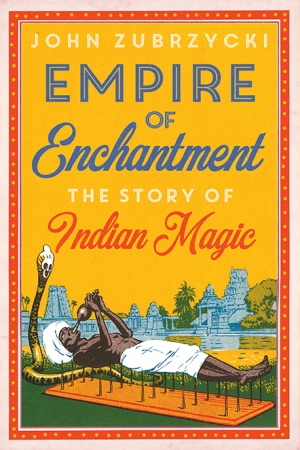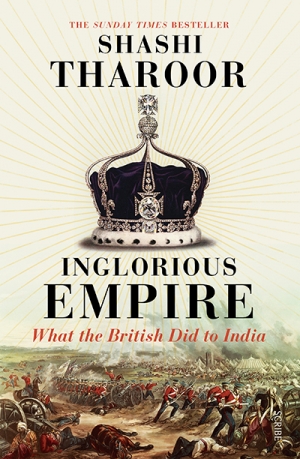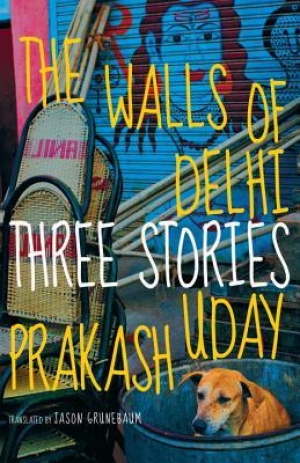India
Ian Hall reviews 'To Kill a Democracy: India’s passage to despotism' by Debasish Roy Chowdhury and John Keane
In a recent interview, India’s foreign minister, Subrahmanyam Jaishankar, was asked whether his country was heading in what his interlocutor, the Lowy Institute’s Michael Fullilove, called ‘an illiberal direction’. Bristling, Jaishankar denied the charge. India is undergoing something quite different, he argued. It is experiencing a ‘very deep democratization’. This process might be hard for outsiders to understand, but it was positive, not problematic. After decades of rule by an English-speaking, Western-educated élite, the country was at last being governed by politicians who spoke and thought and behaved like ordinary Indians.
... (read more)Chris Wallace reviews 'British India, White Australia: Overseas Indians, intercolonial relations and the Empire' by Kama Maclean
Australian Sikhs delivering free meals to fellow citizens in need has been a heart-warming news story against a backdrop of doom and gloom this year as bushfires then the coronavirus laid waste to life as we know it. Public housing tenants in lockdown, international students stranded without support, and bush-dwellers who lost everything in the fires are among those who benefited from their kindness and competence.
... (read more)Alexandra Roginski reviews 'Empire of Enchantment: The story of Indian magic' by John Zubrzycki
Almost before drawing breath, we meet two troupes of Indian magicians. One appears in the court of the Emperor Jahangir, early seventeenth-century Mughal ruler and aficionado of magic. In the first of twenty-eight tricks, this troupe of seven performers sprout trees from a cluster of plant pots before the emperor’s eyes ...
... (read more)Claudia Hyles reviews 'Koh-I-Noor: The history of the world’s most infamous diamond' by William Dalrymple and Anita Anand
The deadline for this review was 15 August, India’s Independence Day, freedom at midnight in 1947 for India and Pakistan (whose independence is celebrated on 14 August). The British euphemistically called it a ‘transfer of power’. The subsequent division was termed Partition, an anodyne definition of the act of severing ...
... (read more)Mridula Nath Chakraborty reviews 'Inglorious Empire: What the British did to India' by Shashi Tharoor
For a book that began as a tweet, Shashi Tharoor’s Inglorious Empire: What the British did to India has had a remarkable journey, taking its best-selling author on a world tour, both to the centre of Empire in the United Kingdom, and its outpost in Australia. A career diplomat who retired as under-secretary general at the ...
... (read more)Terri-ann White reviews 'Calcutta: Two years in the city' by Amit Chaudhuri
There is currently a very appealing trend in publishing with books about cities written by creative writers: fiction writers, novelists, and essayists. In Australia we have had the Cities Series from NewSouth Publishing: personal, writerly books that capture the spirit of our capital cities (and Alice Springs) and take us along pathways, with the idiosyncratic accompaniment of a local who is also a writer.
In recent years there have also been books of this type on Indian cities, including Mumbai and Delhi. This fascinating genre can carry along with it many different aspects of mythmaking; of history; of the daily movements and habits of the author. They aren’t travel guides, more like reflections on quotidian matters. Most of them necessarily also spin around an idea of what home is.
... (read more)Mridula Nath Chakraborty reviews 'The Walls of Delhi' by Uday Prakash, translated by Jason Grunebaum
Continuously inhabited since at least the sixth century, Delhi is fabled to be the city that was built seven times and razed to the ground seven times. Some believe the word Delhi comes from dehali or threshold, and the city is seen as the gateway to the Great Indian Gangetic plains. In 1912 the British moved their colonial seat of power from Calcutta to New Delhi, which also became the capital of independent India and celebrates its hundredth anniversary this year. It seems apt, then, in 2012, to read about the older Delhi that lies and lurks behind the shining veneer of India’s National Capital Territory, a Delhi that the rising Asian power seems eager to forget and obliterate.
... (read more)'Letter from Jaipur: Free speech and sectarian tensions at the Jaipur Festival' by Claudia Hyles
This year’s Jaipur Literature Festival (20–24 January) more than lived up to the Indian Ministry of Tourism’s slogan – ‘Incredible India’.
... (read more)Greg Barton reviews 'Islamism and Democracy in India: The transformation of Jamaat-e-Islami' by Irfan Ahmad
The terrorist attacks of 9/11, and the loosely related jihadi Islamist terrorist attacks that followed in a dozen countries, have left the world more afraid than ever of Islam. Modern terrorism is not the only factor. The West has long had a problem with Islam. This perception dates back a full millennium to a time when Europe was in its dark ages and Islamic civilisation was blossoming. From the beginning, Western anxiety about Islam has been based on almost total ignorance. Well before there was any substantial contact between Europeans and Muslims, Islam was an imagined ‘other’ automatically cast as the opposite of everything that the ‘Christian West’ claimed as its legacy.
... (read more)Rick Hosking reviews 'Of Sadhus and Spinners: Australian Encounters with India' edited by Bruce Bennett et al.
Of Sadhus and Spinners: Australian Encounters with India has been assembled by several of the stalwarts of this particular cultural exchange, all based in Australian or Indian universities. Bruce Bennett and Santosh Sareen have played leading roles over the last two or three decades in establishing Australian Studies in India, most notably through the Indian Association for the Study of Australian Literature.
... (read more)








